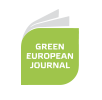The Association of Southeast Asian Nations (ASEAN), a 10 member grouping of countries that together count 623,6 million citizens, should be given much more attention by the European Union. This is the main message of a new EP report under consideration in the Foreign Affairs Committee (AFET).
The report, of which I am the rapporteur, will indeed be the first EP report addressing EU-ASEAN political relations as such. Trade and investment relations with ASEAN have been on the radar screen of European policymakers for some time. The EU’s imports from Southeast Asian countries currently amount to 96 billion euros annually, representing 5,5% of total EU imports. Vice versa, ASEAN countries – Brunei Darussalam, Cambodia, Indonesia, Laos, Malaysia, Burma/Myanmar, Philippines, Singapore, Thailand and Vietnam – import 9,4% of their imports from the EU.
When ASEAN was founded on an auspicious day, August 8th, in 1967, the main purpose of the organisation was the promotion of economic integration. ASEAN has achieved a lot of success in the pursuit of that purpose and has recently set out for itself even more ambitious goals.
But in the context of the strategic competition over hegemony in the Asia-Pacific region that is developing between the Chinese dragon and the American eagle, ASEAN has inadvertently been challenged to hang closer together and to take on a more common political role or be under increasingly strong influence or even pressure by third actors.
ASEAN member states’ governments are working on that challenge, and it is in the EU’s interest that they succeed. Their success will contribute to regional and global stability, peace and the creation of an adequate 21st century multi-lateral international governance system.
Clearly, there is ample reason for intensified relations between the EU and ASEAN. And the EU is finally waking up to Southeast Asia’s potential and is starting to move: EU High Representative of the Union for Foreign Affairs & Security Policy Catherine Ashton visited the region in July 2012 and took part in several (inter)regional high level meetings since. Currently the EU is negotiating and/or concluding seven Partnership Cooperation Agreements with ASEAN Member States (Brunei Darussalam, Indonesia, Malaysia, the Philippines, Singapore, Thailand and Vietnam), alongside the Free Trade Agreements that are under way.
The European Parliament is clearly in support of this development. It has for instance organized in the last year several hearings on ASEAN-EU relations. The AFET report on ASEAN-EU political relations is now trying to take this a few steps further. The report is based on the key principle that the EU and ASEAN are equal partners; the EU has just as much to learn from ASEAN as the other way around.
The report lends strong support of consideration within the EEAS that there should be an EU mission to ASEAN soon. The report advocates stronger EU-ASEAN cooperation in different international organisations. It moves in the direction of a future EU-ASEAN parliamentary Assembly. And, most importantly, it calls for new efforts to promote people-to-people connectivity; it proposes specific ideas to enhance cultural and scientific cooperation. For instance we should give broader coverage of the ASEAN region in education in the EU. Member States and the EU should consider cooperating on a series of yearly exchanges, through which individual EU member states would be featured as cultural partners in ASEAN countries and vice versa (EU-ASEAN cultural year). Why not establish ASEAN study centres in European and EU study centres in ASEAN Universities? And why not set up EU-Asia school and city twinning initiatives to link up regions in Europe and ASEAN?
It is encouraging to see also clear signals from EU member states towards a stronger relationship with ASEAN. It is an idea whose time has come.

















